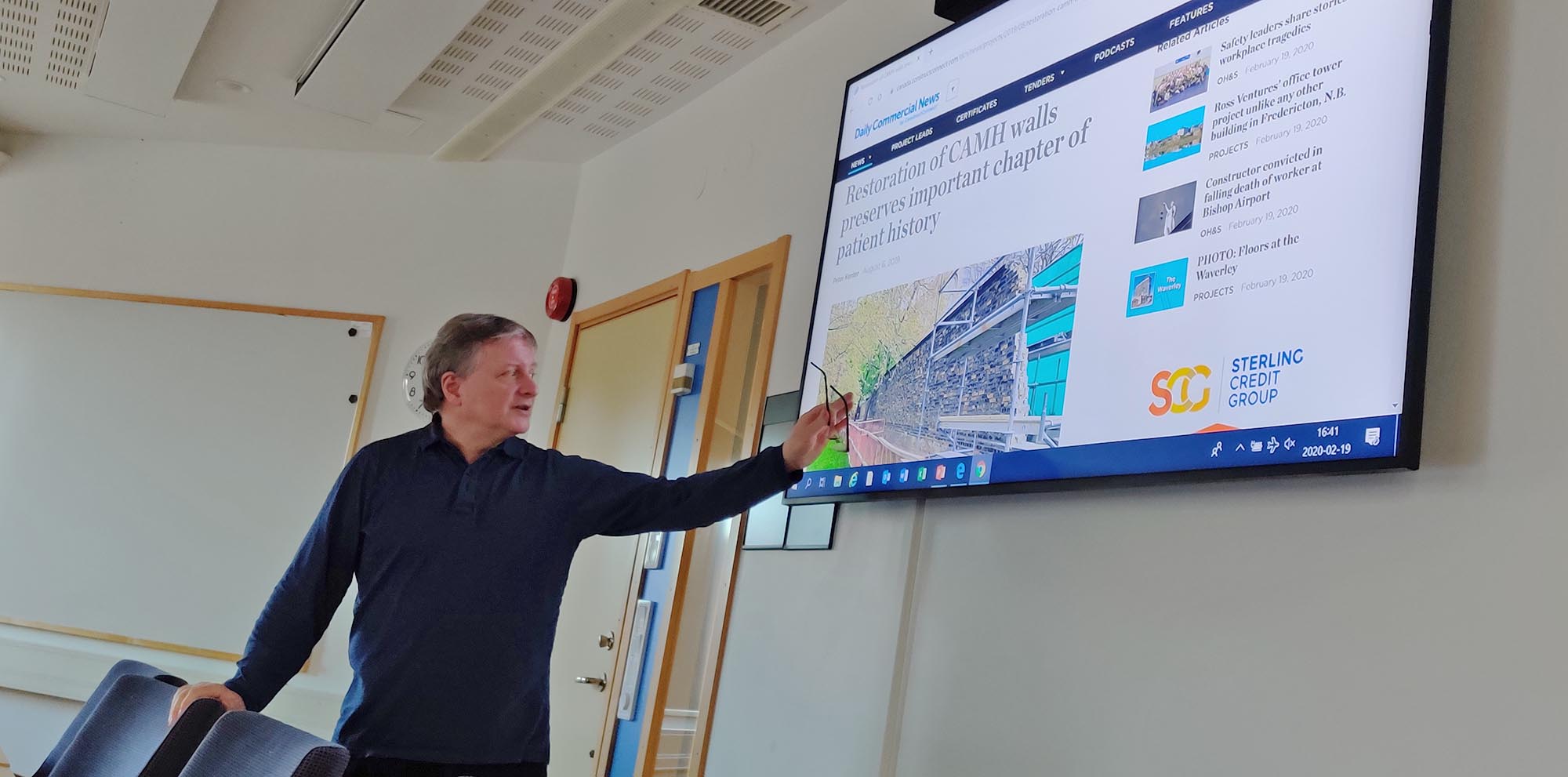
Workshop med Geoffrey Reaume
I februari 2020 var Geoffrey Reaume gästforskare vid Center för kritiska kulturarvsstudier (CCHS) och Institutionen för socialt arbete, Göteborgs universitet. Geoffrey höll välbesökta öppna föreläsningar och hade en workshop med vår förening. Geoffrey är docent i critical disability studies och historiker. Han är även en av frontfigurerna inom Mad studies, ett interdisciplinärt fält där kliniker, forskare, ex-patienter, brukare, konstnärer och anhöriga arbetar tillsammans för att förstå psykisk ohälsa. Perspektivet är kritiskt mot den etablerade psykiatrin och dess förklarings- och behandlingsmodeller och även kritiskt mot att forskare och kliniker ges tolkningsföreträde. Istället lyfts att personer med egna patienterfarenheter besitter ovärderlig kunskap. Inom Mad studies framhålls också att tillstånd som brukar ses som symtom lika gärna kan handla om egenskaper och tillstånd som är meningsbärande eller så kan de vara reaktioner på svåra upplevelser.
Geoffrey arbetar för att övergrepp som begåtts mot patienter inom psykiatrin ska uppmärksammas och att spår efter patienterna ska betraktas som kulturarv. Han var med och startade föreningen Psychiatric Survivor Archives of Toronto och bidro till att den mur som patienter tvingades bygga vid Toronto hospital for the insane i slutet av 1800-talet bevaras. Plaketter som erkänner patienterna och det tvångsarbete de utförde har installerats.
Vid workshopen delade Geoffrey sina erfarenheter av hur en kan gå tillväga för att minnas och göra tystade patienters röster och liv hörda samt hur vi kan lära av historien för att förstå orättvisor och övergrepp som begås idag.
Workshop with Geoffrey Reaume
In February 2020, Geoffrey Reaume was a guest researcher at the Centre for Critical Heritage Studies (CCHS) and the Department of Social Work, University of Gothenburg. Geoffrey held popular open lectures and had a workshop with our association. Geoffrey is an associate professor in critical disability studies and a historian. He is also one of the leading figures in Mad studies, an interdisciplinary field where clinics, researchers, ex-patients, patients, artists and relatives work together to understand mental ill-health. His perspective is critical toward established psychiatry and its models of explanation and treatment and also critical toward giving researchers and clinics precedence to interpretation. He emphasises that people with their own experience of being a patient possess invaluable knowledge. Mad studies also emphasises that conditions that are usually regarded as symptoms may just as well be about characteristics and conditions that are meaningful or may be reactions to difficult experiences.
Geoffrey works to ensure that abuse suffered by patients in psychiatric care is taken into account and that traces left by patients should be considered as cultural heritage. He was a founder member of the association “Psychiatric Survivor Archives of Toronto” and contributed to the preservation of the wall that patients built as forced labour at the Toronto hospital for the insane in the late 19th century. Plaques recognising patients and the forced labour they carried out have been installed.
During the workshop, Geoffrey shared his experiences of how steps can be taken to remember and make audible the voices and lives of silenced patients, and how history can teach us to understand the injustices and abuses that are committed today.
